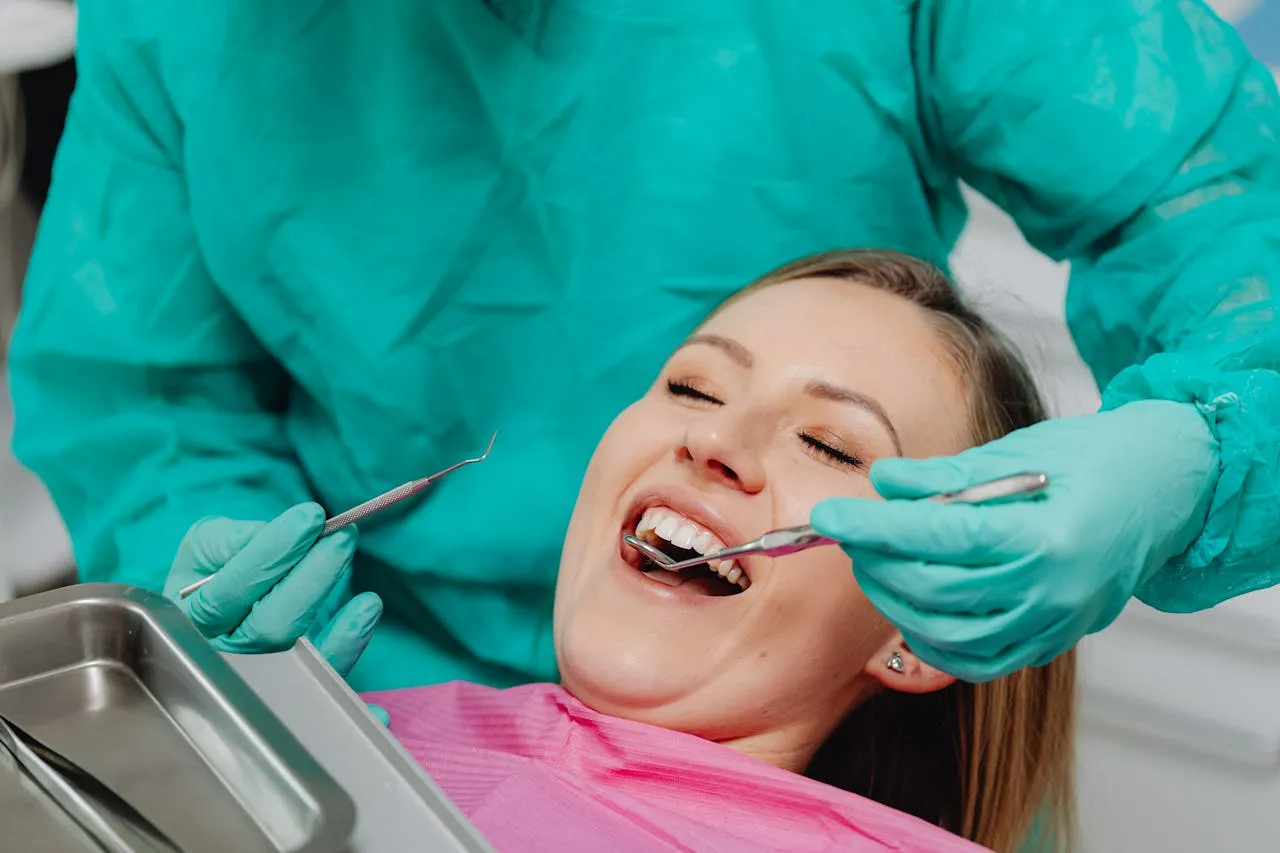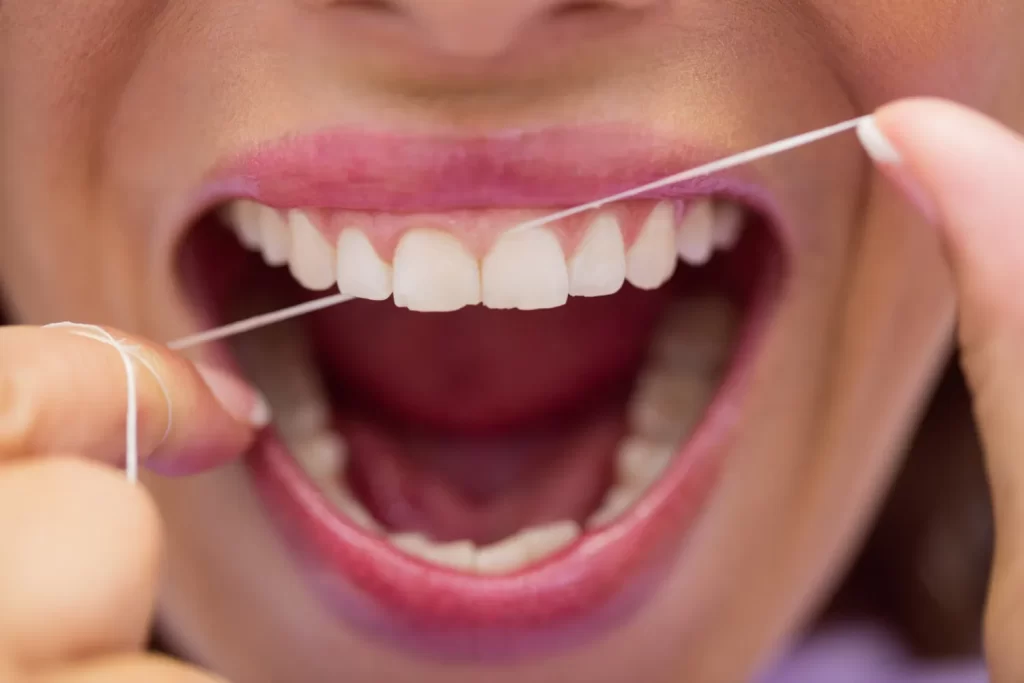How to Avoid Root Canal Treatment

Root canal treatment is often necessary when the pulp of a tooth becomes inflamed or infected. This can result from deep decay, repeated dental procedures, cracked or chipped teeth, or trauma. While endodontic treatment is highly successful, it’s best avoided through proactive care.
Preventing the need for a root canal involves maintaining excellent oral hygiene, making informed dietary choices, and protecting your teeth from injury.
This guide explores effective strategies to help you preserve your natural teeth.
Understanding What Leads to Root Canal Treatment
Root canal treatment becomes necessary when the pulp of a tooth becomes inflamed or infected. This can be caused by:
- Deep decay that reaches the tooth pulp
- Repeated dental procedures on the same tooth
- Cracked or chipped teeth from injury or wear
- Trauma or infection that affects the pulp
While endodontic treatment is highly successful, it’s best avoided through proactive care.
Maintain a Thorough Daily Oral Hygiene Routine

Excellent oral hygiene is your first line of defence against decay and infection. Most cases requiring a root canal stem from tooth decay that progresses over time due to inadequate hygiene. You can also complement your daily routine with professional cleanings to remove tartar and plaque in areas you may miss at home.
Best Practices for Oral Hygiene
- Brush twice daily with fluoride toothpaste to remove plaque and prevent decay.
- Floss daily to clean between teeth where brushing misses.
- Use antibacterial mouthwash to help control bacteria and reduce the risk of infection.
Ensure that you brush along the gumline and focus on hard-to-reach back molars. Replace your toothbrush every three months or when bristles begin to fray.
Address Dental Discomfort Early
Tooth sensitivity or mild discomfort should never be ignored. These early warning signs often precede more serious dental issues.
Key Symptoms to Watch For
- Sensitivity to hot, cold, or sweet foods
- Pain while biting or chewing
- Persistent bad breath despite good hygiene
If you notice any of these symptoms, don’t wait for them to worsen. Visiting a dentist early can help avoid more serious complications down the line.
Schedule Regular Dental Check-ups and Cleanings
Routine dental visits allow early detection of issues before they become serious. Many problems, such as enamel erosion or early decay, may not present symptoms but can be caught during an exam.
What to Expect at a Dental Check-up
- Professional cleaning to remove tartar build-up
- Examination and X-rays to identify any underlying issues
- Preventive treatments like fluoride applications or sealants
Regular check-ups help ensure any dental issues are caught early, reducing the risk of requiring a root canal later on.
Eat a Tooth-Friendly Diet to Avoid Root Canal Treatment

What you eat has a major effect on your oral health. A tooth-friendly diet is rich in nutrients and low in sugar and acid.
Tips for a Healthy, Tooth-Friendly Diet
- Limit sugary and acidic foods that erode enamel and contribute to decay.
- Avoid hard foods like ice and boiled sweets that can crack or chip teeth.
- Choose calcium-rich foods such as dairy products, leafy greens, and crunchy vegetables that stimulate saliva production and strengthen enamel.
Hydration is important, so drink plenty of water throughout the day to help rinse away harmful acids and food particles.
Use Fluoride Toothpaste and Dental Products
Fluoride is essential for protecting your teeth from decay. It supports enamel remineralisation and reduces the risk of cavities, which can eventually lead to a root canal.
How to Effectively Use Fluoride
- Use fluoride toothpaste for daily brushing.
- Consider fluoride mouthwash to help strengthen enamel.
- In areas where fluoride is lacking in tap water, topical fluoride treatments or supplements may be necessary.
Your dentist can provide fluoride treatments to further protect your teeth, especially if you are at high risk for cavities.
Wear a Mouthguard During Contact Sports or If You Grind Your Teeth
Dental trauma is a common cause of tooth damage that can lead to a root canal. A mouthguard is a simple but effective way to protect your teeth from injury.
Benefits of Wearing a Mouthguard
- Protects teeth from cracks and chips during sports.
- Prevents excessive wear caused by teeth grinding (bruxism).
- Helps prevent damage from clenching or biting hard objects.
It’s especially crucial to wear a mouthguard during high-impact activities such as football, rugby, or hockey. If you grind your teeth at night, a night guard can protect your enamel and reduce the likelihood of damage.
Avoid Using Teeth as Tools
Using your teeth for tasks other than chewing food can cause cracks and fractures. These small damages can lead to infection and, in turn, require a root canal.
Habits to Avoid
- Don’t use teeth to open packages or bottles.
- Avoid chewing on hard objects like ice, pens, or nails.
- Don’t bite your nails, as this can cause unnecessary stress on your teeth.
Opt for the right tools to open packages or bottles, and try to break the habit of chewing hard items. This will preserve your teeth and reduce your risk of injury.
Get Cavities Treated Promptly
Even small cavities can become much larger issues if left untreated. A cavity that goes unchecked for too long can reach the tooth pulp, requiring a root canal.
The Importance of Early Treatment
- Treat cavities early to prevent them from growing deeper.
- Fillings prevent cavities from reaching the pulp.
- A small cavity today is far easier to treat than a full-blown infection tomorrow.
Regular check-ups allow your dentist to catch cavities early, ensuring you can treat them before they require invasive procedures.
Don’t Ignore Persistent Dental Pain
Pain is your body’s warning signal, and persistent tooth pain can indicate a deeper issue that might require a root canal.
What to Do If You Experience Persistent Pain
- Visit a dentist to identify the cause of the discomfort.
- The pain may be from decay, infection, or trauma, all of which require early attention.
- Early treatment can prevent the need for a root canal.
The sooner you address persistent pain, the better your chances of preventing further damage.
Understand How Saliva Protects Your Teeth
Saliva is an often-overlooked natural defence that helps protect your teeth from decay and infection.
How Saliva Protects Your Teeth
- Rinses away food particles and harmful acids.
- Helps neutralise pH levels in your mouth, preventing tooth decay.
- Mineralises enamel to help keep teeth strong.
Drinking plenty of water and chewing sugar-free gum can help stimulate saliva production, ensuring your teeth are naturally protected.
Consider Dental Sealants for Added Protection
Dental sealants are thin protective coatings applied to the chewing surfaces of your back teeth, preventing cavities from forming.
Benefits of Dental Sealants
- Provide an extra barrier against decay-causing bacteria.
- Sealants protect the grooves in molars where food and plaque often get trapped.
- Sealants are especially beneficial for children and teenagers, but can also be used by adults with healthy teeth.
Dental sealants are a great preventive measure, especially for individuals at higher risk of cavities. They provide an extra layer of protection against decay and help reduce the need for more extensive treatments later on.
Protect Your Teeth with Regular Professional Cleanings
Even with diligent at-home care, plaque and tartar can build up in areas that are difficult to reach. Regular professional cleanings ensure that your teeth remain free from harmful bacteria that can cause infections and decay.
Why Professional Cleanings Matter
- Tartar removal: Professional cleanings remove tartar, which regular brushing cannot.
- Early detection: Dentists can identify any potential issues before they become serious.
- Health monitoring: Regular check-ups allow your dentist to monitor the health of your gums and teeth, which helps prevent conditions like gum disease that may contribute to root canal infections.
Professional cleanings are an essential part of maintaining oral health and preventing the need for root canal treatment.
Final Thoughts
Root canal treatments are often the result of dental issues that could have been avoided with proper care and attention. By maintaining excellent oral hygiene, addressing any discomfort early, scheduling regular dental check-ups, and making mindful lifestyle choices, you can significantly reduce the likelihood of needing root canal treatment.
At Dr Bobby Chhoker’s dental practice, we believe that prevention is key. With our comprehensive approach to dental care, we help patients maintain healthy smiles through regular check-ups, professional cleanings, and personalised advice tailored to their unique needs.
If you’re looking to take proactive steps towards preserving your natural teeth, don’t wait until discomfort sets in. Book an appointment with us today and let our expert team guide you in preventing the need for root canal treatment and maintaining long-lasting dental health.
